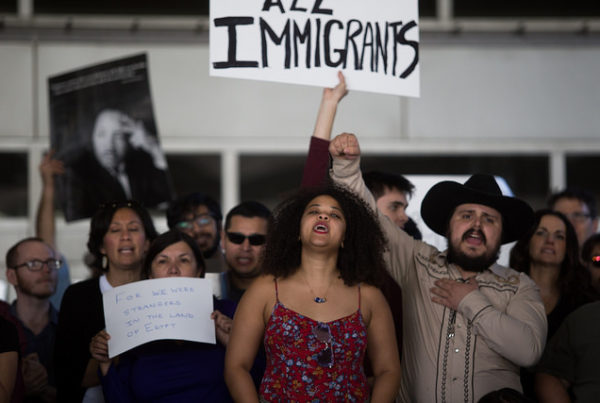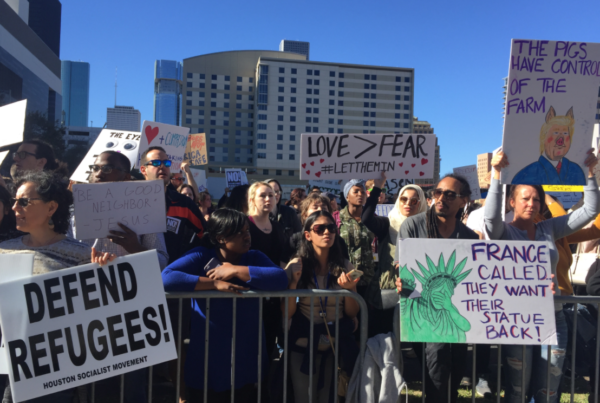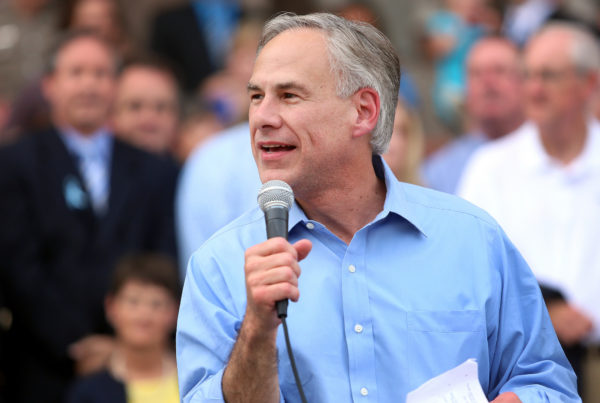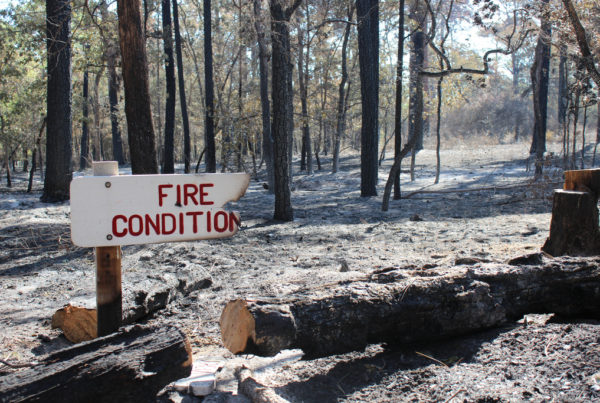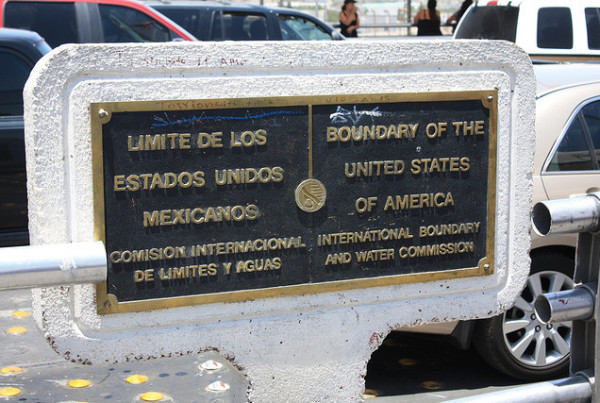President Donald Trump signed a multitude of executive orders last week. One directive blocked Syrian refugees from coming to the United States indefinitely; banned anyone from Iran, Iraq, Libya, Somalia, Sudan, Syria and Yemen from entering the country for 90 days; and put a 120-day suspension on all refugee admissions.
Trump also signed an order placing Steve Bannon on the National Security Council’s principals committee, while demoting the director of national intelligence and the chairman of the Joint Chiefs of Staff.
Many are trying to determine what these moves mean for U.S. foreign relations.
Texas Republicans in Washington are not commenting on the directives, except for House Homeland Security Chairman Michael McCaul, whose ideas might have been used as part of the drafting.
McCaul* said Friday he applauded the president for “moving swiftly to put in place the multi-layered barrier defenses we need to keep criminals, drugs, and potential terrorists out of our country.”
Then on Sunday, he clarified that some adjustments were needed to the order, so as not to turn away those with lawful visas or green cards. He also said he offered Trump advice on how to develop what he called “better, common-sense security checks for immigrants and refugees.”
Ryan Crocker is one of those who is analyzing the future of foreign relations under the Trump administration. He’s a former ambassador to Afghanistan, Syria, Iraq, Pakistan, Kuwait, and Lebanon.
Crocker says the refugee and immigrant bans don’t make sense.
“It’s like so much else that is happening with the new administration,” he says. “It’s as though they just threw darts at a map of the world and these were the lucky ones. There is no consistent theme here. The inclusion of Iraq – it just leaves me speechless.”
The U.S. has an allyship with Iraq – one Crocker says he helped to negotiate. The U.S. is also working with Iraqi forces to drive the self-described Islamic State out of Mosul. Many U.S. soldiers have worked alongside Iraqi nationals on the front line of the war on terrorism.
Some Iraqis who worked as translators, advisors, or in some other capacity with armed forces, are seeking asylum in the U.S. But their status is now up in the air. Crocker says this most likely makes the situation uncomfortable for the U.S. and Iraqi forces working together.
“This puts everything on hold, including special immigrant visas for those who risked their lives working with us,” he says. “That is a moral failing. These people risked their lives – and in some cases gave their lives – to advance our mission and our thank you to them is ‘Don’t even think about coming here.’
“This is also going have a toxic effect on those currently working as interpreters or those who may hold a job like that in some future contingency.”
The executive order which reorganized the National Security Council is significant, Crocker says. The president has the authority to name anyone he wants to varying levels of the National Security Council, but in this case, Trump has done something that no previous president had done, Crocker says.
The two coupled together – Bannon emerging as a top player on national security and the demotion of the other positions – is “pretty frightening,” Crocker says.
“If this goes ahead, then you’ll have a national security team that is going to be making life and death, war and peace decisions,” he says, “without representation of either of the uniform military or the intelligence community – two top pillars in our national security.
“So fasten your seatbelt, it’s going to be a very rocky ride.”
*The Texas Standard reached out to McCaul and several other Republican leaders over the weekend for comment on the executive order. None were available to talk with us.
Written by Beth Cortez-Neavel.




